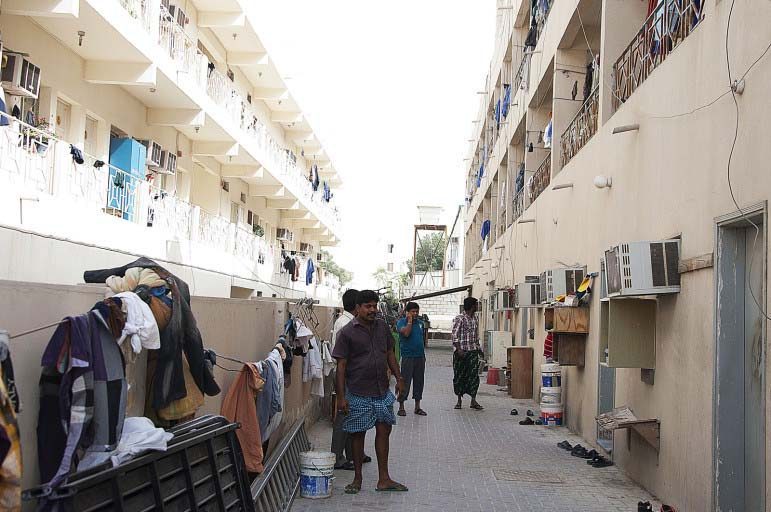
Following a visit to Qatar this month, a delegation of UN labor inspectors has said it is doubtful that upcoming kafala changes will do much to protect the country’s migrant workforce.
Senior International Labour Organization (ILO) members have filed a preliminary report after coming here to investigate complaints that the country’s sponsorship system facilitates “forced labor” by making it difficult for expats to leave abusive employers.
They will announce on Tuesday whether they recommend the establishment of a commission of inquiry, the ILO’s highest investigative mechanism, to take a closer look at the complaints.

For nearly two years, officials in Qatar have used their kafala reform plans to deflect criticism of the country’s human rights record.
A new law, billed as a way to make it easier for expats to leave the country and change jobs, was signed by the Emir last October and will take effect this December.
Mixed conditions
During their trip here, officials observed a mixed picture in terms of the living and working conditions of low-income expats in Qatar, and the government’s efforts to address any problems.
The delegation said they were told that the new law would remove all restrictions on the freedom of expats’ movement in Qatar and that people would no longer be forced to continue working for an abusive employer.
However, the officials – which included the chairperson and vice-chairpersons of the ILO’s governing body – left Qatar unsure what impact the law will actually have:
“(The new sponsorship law) still places restrictions on the possibility of workers to leave the country or to change employers and would prevent workers who might be victims of abusive practices from freeing themselves from these situations,” delegates wrote.
Investigation
According to the report, the delegation said it visited a labor camp in Al Wakrah rented by contractors working on the Doha Metro.
Built to house some 1,500 men, the facility had adequate bathroom and kitchen facilities, air conditioning and lighting. According to the ILO, there were also basic on-site amenities such as a grocery store, barber shop, sports facilities and a room containing computers connected to the internet.

The delegation also heard from government officials about Qatar’s ongoing efforts to crack down on sponsors confiscating expats’ passports.
The government also recently introduced a wage protection system – which mandates that employees receive their salary electronically – and has been working to help blue-collar workers pursue legal cases against employers who break the law.
But the ILO delegation also visited a labor camp in Sailiya, used primarily by smaller subcontractors and manpower firms, that “does not satisfy by far the minimum standards, with most accommodation housing ten to 12 workers per small room, unhygienic and poor kitchen and sanitary facilities.”
The residents, who were mostly from Nepal and the Philippines, raised multiple complaints about their wages – including nonpayment, late payment and a reduction of an agreed salary – passport confiscation, long hours of work, refusal by employers to give a no-objection certificate to workers after their contract had expired, the non-renewal of their identity cards and difficulty in transferring sponsorship.
The delegation said these workers were not aware of the wage protection system and did not receive their salary electronically.
Several said they had filed legal complaints, but that their cases were held up for months – during which time they had no income – because their employer failed to show up for their proceedings.
Electronic contracts
The ILO report also contains several previously unpublicized statistics and government initiatives.
The delegation said it was told by the Ministry of Administrative Development, Labor and Social Affairs that Qatar has been putting pressure on labor-sending countries to monitor recruitment firms more closely and establish an accreditation system.

Additionally, Qatar wants expats to start using electronic employment contracts “in the near future” to reduce the risk of deception in the recruitment process.
Many blue-collar expats have said they are forced to perform a different job at a lower pay than what they were promised in their home country.
Separately, the human rights department within the Ministry of Interior said it stepped in and transferred the sponsorship of 2,185 expats last year, up sharply from 450 in 2014.
Elsewhere, the Justice Department told the ILO delegation that it hoped a draft law aimed at protecting domestic workers – who are not covered by Qatar’s labor law – would be tabled this year, but conceded that it has been in the works since 2012.
Thoughts?







